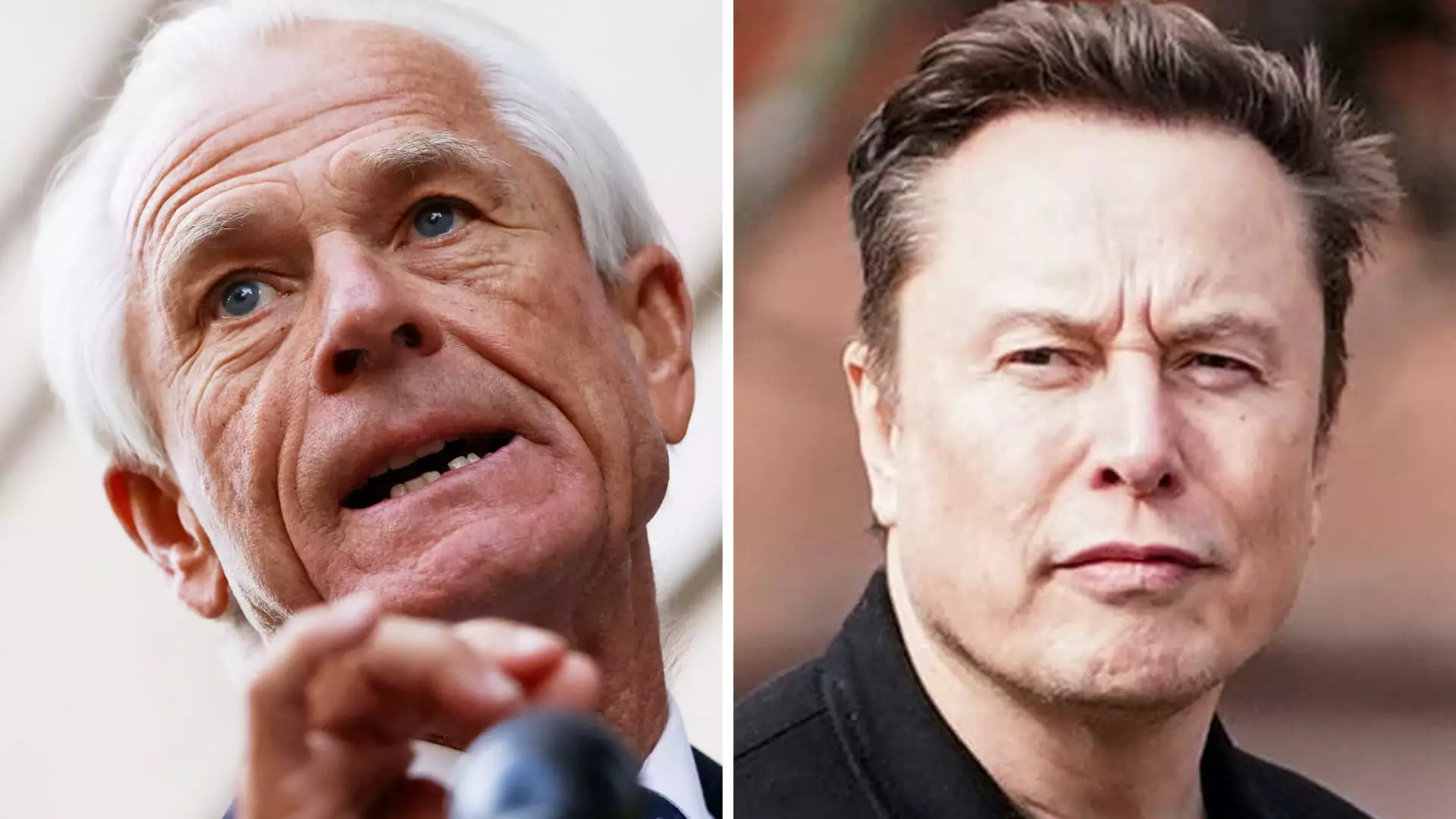In the chaos of the Trump administration, few figures are as emblematic of the contradictions at play as Elon Musk. Here is a billionaire who has positioned himself as a disruptor within the tech industry, yet finds himself entangled with the populist currents that define the White House. Just when we thought the partnership between Musk and administration officials like Peter Navarro would lead to innovative policies benefiting American workers, a public spat turned the spotlight on the tormented dynamics in Trump’s trade war.
Peter Navarro, the top trade adviser, recently attempted to project a veneer of camaraderie with Musk, even after the Tesla CEO dismissed Navarro as a “moron.” Talk about a backhanded compliment! Such moments expose the fragility of relationships within the Trump administration, where loyalty often seems as ephemeral as a tweet. Navarro insists everything is fine, but his dismissive jibes about Musk being merely an “assembler” rather than a true manufacturer exemplify a deeper rift. These differences highlight the quasi-ideological warfare within the administration: one side embodies the protectionist ethos, while the other champions the globalized market.
The American Manufacturing Dream
What’s truly at stake here extends beyond personal tensions. Navarro’s call for keeping manufacturing jobs in America takes on an almost mythic quality within the conservative ideology; he envisions factories roaring with life in the rust-belt heartlands—places like Akron, Flint, and Saginaw. Yet, the very Titan of tech, Musk, publicly argues for the benefits of reducing tariffs, representing a new style of capitalism that transcends traditional manufacturing paradigms. The dichotomy between supporting American jobs and allowing free markets to operate without burdens raises significant questions about what kind of economic future we truly want.
Navarro’s romantic vision of a resurgent American manufacturing sector offers real appeal. However, when juxtaposed with Musk’s forward-thinking strategies, it becomes apparent that there is an underlying fear of change—a fear that has been politically weaponized under the banner of American exceptionalism. Musk, in stark contrast to Navarro, doesn’t relegate himself to nostalgic fantasies of the past but instead pushes to innovate even within a global framework. It begs the question: can the United States adapt, or will we be stuck feeding tribal divisions over nostalgic narratives?
Sarcasm as a Weapon
Musk’s barbed comments directed toward Navarro, including comparisons of him to “a sack of bricks,” serve as a snapshot of an administration where sarcasm and comedic critique have supplanted coherent discourse. It’s as if the world of tech, with its relentless drive for progress, is clashing against old-school political machinations that often prioritize maintaining status quo instead of embracing revolutionary change.
While it’s entertaining to observe the Twitter banter, it highlights a troubling truth: when personal grievances overshadow policy discussions, the real losers are the American public. Musk’s shallow apologies to Navarro aren’t simply tongue-in-cheek. They reveal a disconcerting trend within leadership circles where the imaginative discussions necessary for moving the economy forward take a backseat to personality conflicts and one-upmanship.
A Trade Policy in Shambles
To witness Navarro play the loyal soldier defending Trump’s tariffs represents a troubling dedication to a policy that lacks comprehensive support from key economic players like Musk. These tariffs are not merely trade barriers but red flags indicating a broader failure to adapt. While Navarro touts the potential of making “90 deals in 90 days,” the reality is that this frenetic pace hardly inspires confidence. Instead, it highlights a rash approach to governance that could destabilize our economy further.
As Trump battles to negotiate terms, the constant flip-flopping on tariffs only reveals inefficiency. The whims of a president lacking a coherent long-term trade strategy put both domestic industries and international relations at risk. What you’re left with is a trade policy that could potentially alienate not only allies but also the very industries that fuel our economic growth.
In a time when leadership should be about clarity and foresight, these squabbles reveal cracks in the facade of competence and unity the Trump administration strives to present. Instead of marching forward as a cohesive unit toward a vision of American prosperity, we find ourselves ensnared in drama and discord. The question then lingers: can America emerge from this tumultuous chapter revitalized and ready to compete on the global stage, or are we merely watching the unraveling of once-promising alliances?

